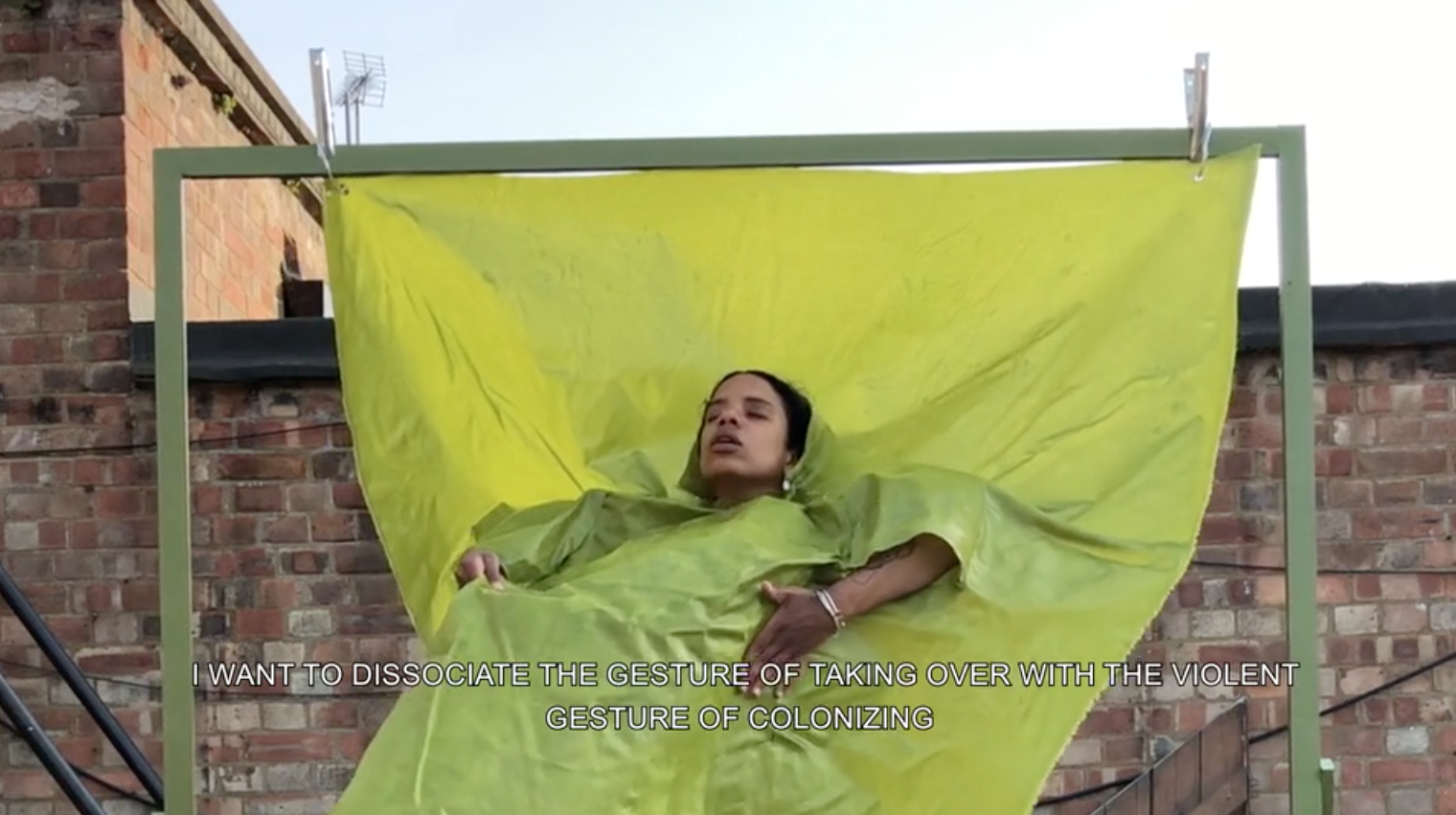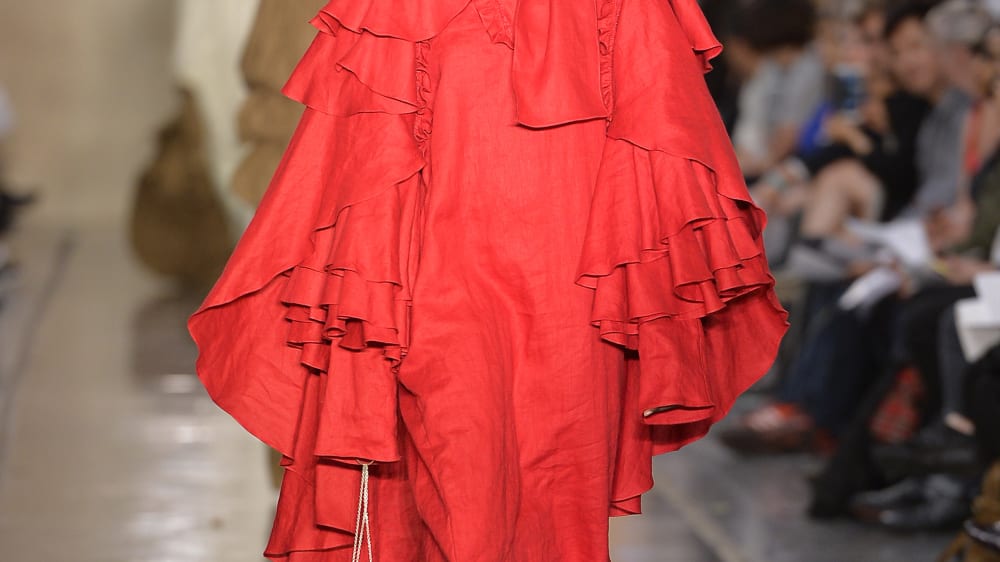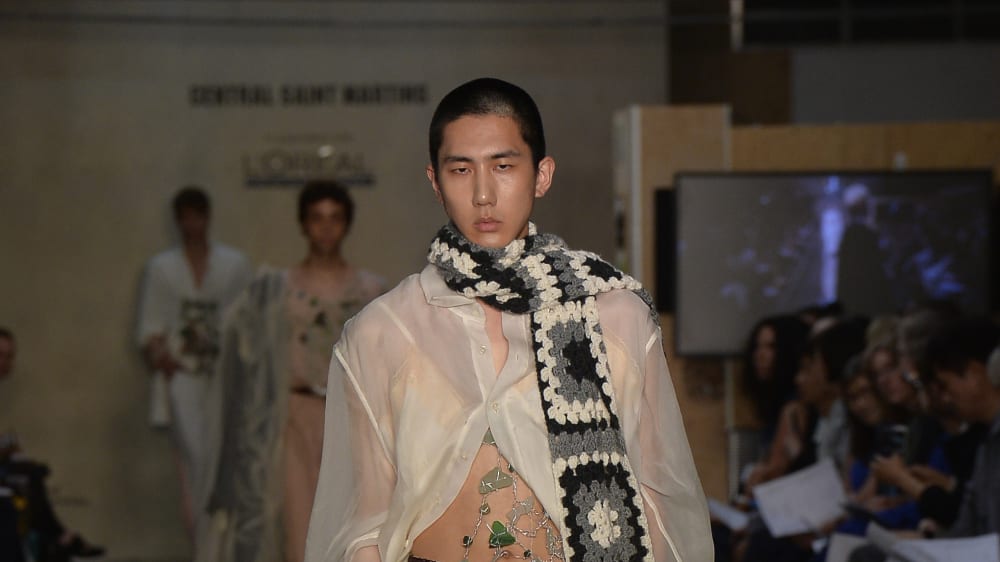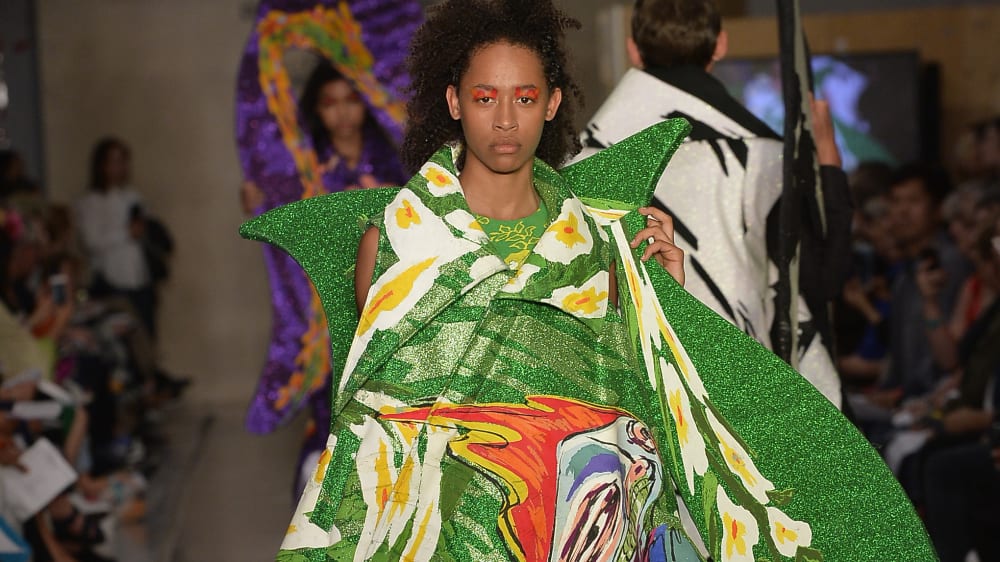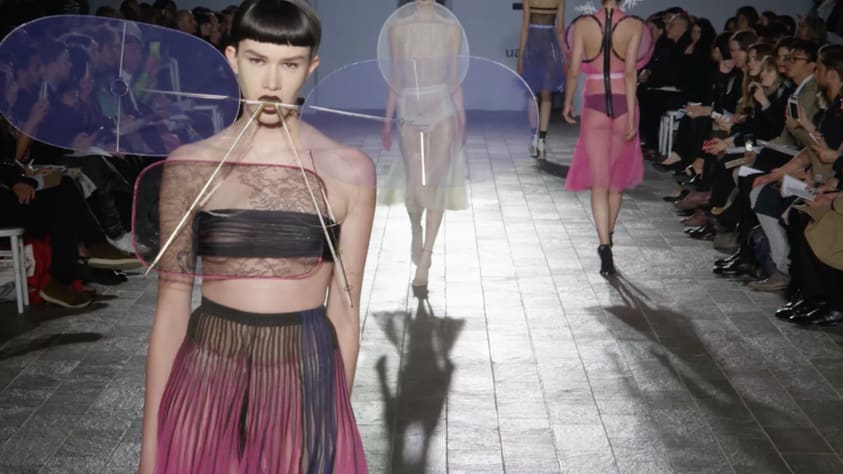As our final-year BA Fashion students share their work with the world, we speak to Sandra Poulson (BA Fashion: Fashion Print) about her final project exploring decoloniality, archives and power.
On a rooftop stands a frame, a cube, a ladder and a stack of beer crates. Hanging from the frame is a length of green material formed, at its centre, into a garment. Over the course of four minutes, a woman climbs into the clothes. As she wears the clothes and objects around her, so too do they wear her.
Sandra Poulson’s film The Ladder is one part of her final BA Fashion collection An Angolan Archive in which she reflects on colonisation and power. “It’s related with power and the lack of mobility that power implies,” explains Poulson, “The obvious understanding of power is that you can do anything you want and I flip it and start understanding the limitations of power. The platform, frame and garment are restrictive – they are the space in which political power operates, a space in which actions are difficult but words are easy. Speaking is the only thing that can be done in this realm.”
As Poulson physically navigates and negotiates the garments and objects, her monologue opens the door for the viewer. It begins: “I have been contemplating this space, since the beginning of my quarantine, the nineteenth of March 2020. Finally got the courage to dissociate the gesture of taking it over with the violent gesture of colonising. I am colonising this roof?”
Work on her final collection started in August last year, when the then student travelled back to the city in which she grew up, Angola’s capital, Luanda. “I was navigating Luanda from a different pair of shoes," she recalls, "I learnt to appreciate what was very common when I lived there: the informal settlements and businesses, the new friendships and relationships that arrive every single second when you’re walking on the street.”

She documented everything: conversations, people, places. Returning to her final year at College, Poulson had 3,000 pieces of information. The advice when she presented her findings was to edit, perhaps focus on specific references. But for Poulson, the value wasn’t hidden in one or two of the entries but the collection as a whole and the connections between individual things.
“Every time I tried to isolate something I would kill it… There was no way I could speak about Angola without speaking about politics, economics, colonisation, international relations... I wasn’t ready to pick and didn’t want to isolate and fetishise one aspect.”
It became clear that whatever her final presentation would be, it wasn’t likely to be rendered solely in a series of garments walked down a runway. “Fashion is never my starting point. It is a mechanism that allows me to study objects in close proximity to the body. It’s never about fashion, but fashion as a tool. Sometimes it’s spatial, sometimes it’s about what people eat or drink. But it’s always about the body. That’s what fashion allows.” Having spent time surrounded by her research, she began making a pillar and beer crate, objects from her archive that could be both references to specific lived experience in Luanda but also abstracted typologies and broader metaphors.
As the project was coming into focus, lockdown happened. Isolated in her north London flat, Poulson began looking for space in which to carry on making. An informal balcony, the rooftop of the flat below, was a space in which she could work. The roof became her workshop, studio, office and exhibition space. After a few weeks, the owners of the flat below appeared and politely agreed that Poulson could keep working until the construction workers were scheduled to arrive in two days. The builders arrived, and Poulson – resolute but polite – continued to work: “I started making tea for the workers and when they’d arrive in the morning I’d already be there.” The ladder for the performance was made from scrap pieces of wood gutted from the flat and offered by the construction workers.

An Angolan Archive, 2020
Though Poulson’s time on the roof may have begun through practical necessity, by the time of the performance it had become an occupation, a colonising act in itself. She speaks as though her research, the lockdown, it all led her to the roof. Yes, there is the archive, the film, the writing and the garments, but what holds the centre is the gesture of occupation.
“I am demanding the task of decoloniality, but at the same time I’m colonising… I found out that the owners of the roof are a gentleman from Kenya and a lady from Tanzania and I realised that I’m actually colonising the roof of my own people. What is happening here?”
Just as her performance reflected the restricting effects of power, so too does the idea of an archive. Poulson is acutely aware that an archive is colonial in outlook – an acquisitive process of categorisation to create a linear authorised narrative. Her work is a critique of that process in which external forces impose certain structures to produce knowledge that is, by definition, institutional and biased. Inherent in this critique is one of education and curriculums as vulnerable to similar charges.
The title of her work is key, it’s An Angolan Archive and not The Angolan Archive, hers is personal, intimate and revelatory in its own way, without denying others. It’s created by someone who actually experienced the objects and moments.
“It’s almost an excel sheet that could alter and anyone could format in their own way. Put their own information in and get their calculations out. Encouraging anyone and everyone to have the agency to tell their own stories.”
